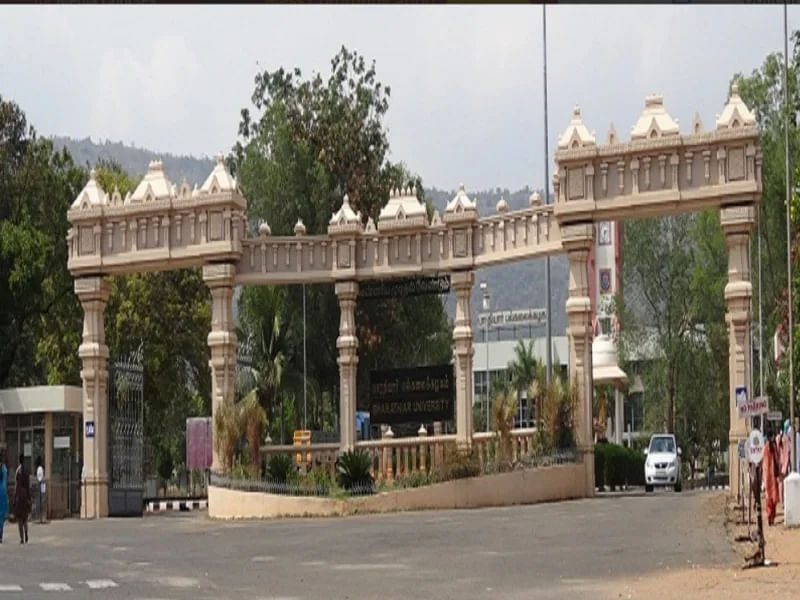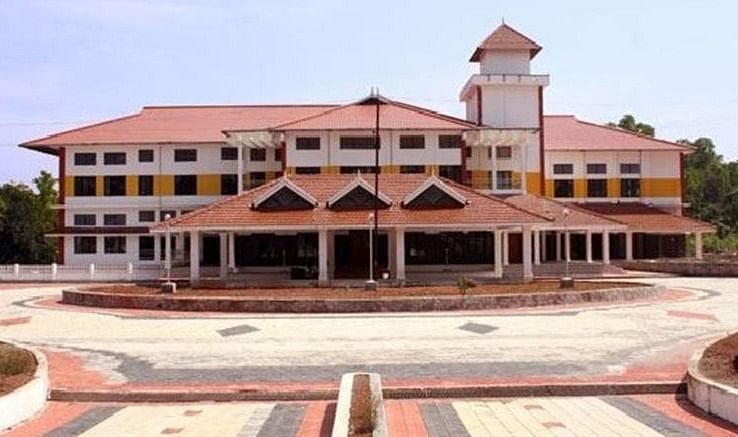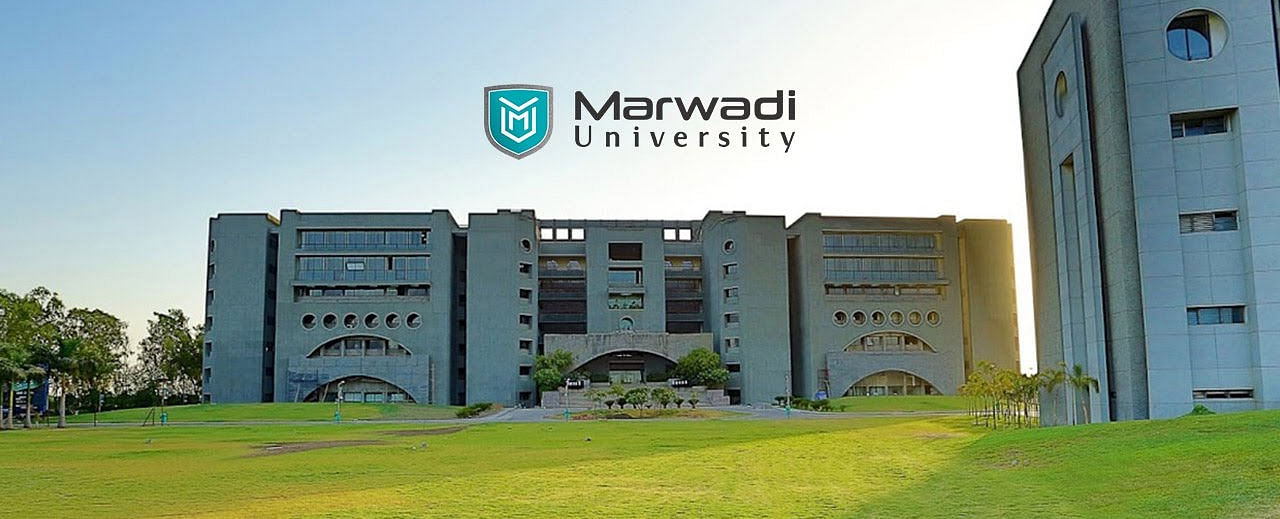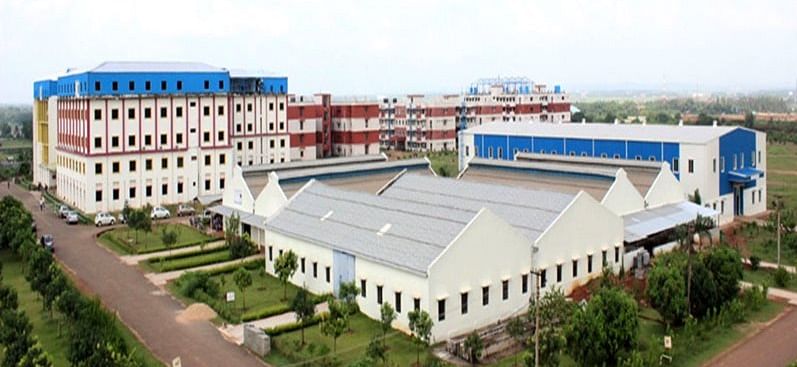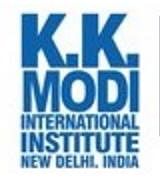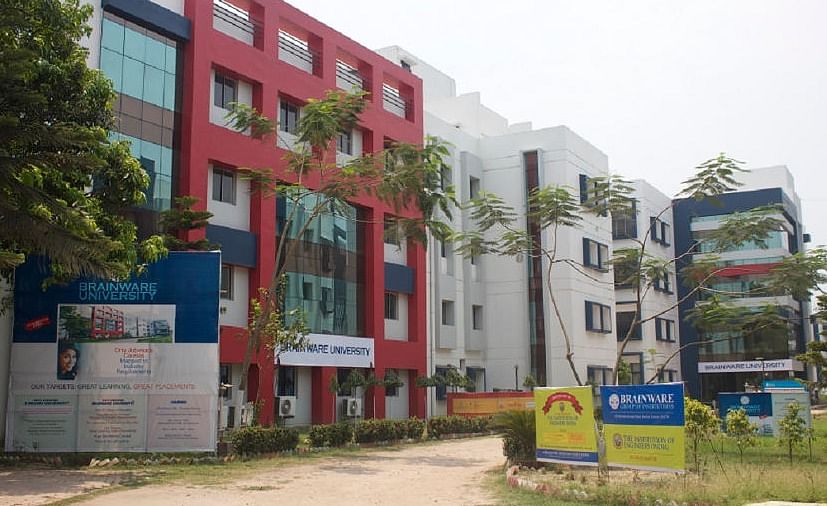M.Sc Cyber Security: Course Details, Eligibility, Admission, Fees

M.Sc Cyber Security is a two-year-long postgraduate course that deals with cyber laws and security. In this course, students learn about communication networks along with ethical issues in cyber security. The different job profiles that are available for the students in this field are Ethical Hackers, Security Software Developer, Cyber Legal Service, Penetration Tester, Security Code Auditor, and many more.
M.Sc Cyber Security Course Details
| Degree | Masters |
| Full Form | Master of Science in Cyber Security |
| Duration | 2 Years |
| Age | No age limit |
| Subjects Required | IT, Cyber Security, Computer science, Forensic Computing, Network engineering, Network Security |
| Minimum Percentage | B.E or B.Tech in Cyber Security with 50% marks |
| Average Fees | ₹30K - 2 LPA |
| Similar Options of Study | MBA, PhD |
| Average Salary | INR 1 - 17 LPA |
| Employment Roles | Cyber Security Architect, Security Application Programmer, Security Analyst, Security Architect, Security Researcher |
| Top Recruiters | Alchetron, Arcon TechSolution, Aurionpro, HaltDos, InstaSafe Technologies Pvt. Ltd. |
About M.Sc Cyber Security
According to Wikipedia “Cybersecurity or information technology security (IT security) is the protection of computer systems and networks from information disclosure, theft of or damage to their hardware, software, or electronic data, as well as from the disruption or misdirection of the services they provide. This course falls under the umbrella of M.Sc.
Table of Contents
- M.Sc Cyber Security Eligibility Criteria
- M.Sc Cyber Security Admission Process
- Who Should Do a M.Sc Cyber Security?
- Types of M.Sc Cyber Security
- Popular M.Sc Cyber Security Entrance Exams
- Top M.Sc Cyber Security Colleges
- Study M.Sc Cyber Security Abroad
- Fees Structure for M.Sc Cyber Security
- Syllabus and Subjects for M.Sc Cyber Security
- Why Choose an M.ScCyber Security?
- M.Sc Cyber Security Course Comparison
- Preparation Tips for M.Sc Cyber Security
- Scope of Higher Education after M.Sc Cyber Security
- M.Sc Cyber Security Salary
- Career Options After M.Sc Cyber Security
- Skills to Excel
Eligibility Criteria for M.Sc Cyber Security
M.Sc Cyber Security eligibility needs to be met by the aspirants to ensure that they get admission to a college of their choice. The students should have a Bachelor's Degree or any related stream with at least 55% marks. Additionally, they must get the minimum cut-off in required entrance exams. There is no age limit for admission to this course.
How To Get Admission in M.Sc Cyber Security?
Students can get admission to top colleges after scoring good in entrance exams. They can apply to colleges in both offline and online modes. Students have to submit their related documents on time. Mentioned below are the general admission requirements:
How to Apply For M.Sc Cyber Security?
For admission to a college of their choice, aspirants must ensure that they are aware of the M.Sc in Cyber Security course details. After submitting the application form, aspirants need to pay the course fees to ensure that they get admitted to a college of their choice.
Selection Process
Students should ensure that they meet all the eligibility requirements set by the colleges. Based on the scores obtained in the entrance exam combined with scores obtained in under graduation and other national level exams the colleges release a rank list, based on which aspirants get admitted in the course of their choice.
Who Should Pursue M.Sc Security?
The M.Sc Security is designed for students who want to specialize in the field of security such as cybersecurity, emergency management, design of security system, and corporate security management. Many security-related industries are always looking for Graduates with M.Sc Security. Because of this, students have various job opportunities after completing this course.
When To Do M.Sc Security?
If a student wants to pursue a career in a Security-related field, he or she should begin at the bachelor’s level. They must pass their bachelor’s degree from a recognized board with a minimum of 50% in relevant subjects.
Types of M.Sc Security
Candidates can pursue the course in full-time or part-time mode. Below are the types of M.Sc Security courses:
Full-Time M.Sc Security
The full-time M.Sc Security duration is 2 years. This course requires more practical knowledge than theoretical understanding. The benefit of studying full-time is that students can gain much more exposure, experience, and knowledge through direct interaction with their fellow students and professors.
Part-Time M.Sc Security
The part-time M.Sc Security course is designed for students who cannot attend regular classes. The duration of the course is 2 years. The advantage of the part-time course is that students can pursue this course while simultaneously being engaged in employment, etc.
Distance M.Sc Security
The distance M.Sc Security programme lasts 1 year and is divided into two four semesters of six months each. For those who wish to pursue an M.Sc Security after their bachelor’s but don't have the time to attend normal classes, distance learning is the ideal option.
Popular Entrance Exams For M.Sc Cyber Security
When opting for an M.Sc Cyber Security in India, the students need to make sure that they participate in the required entrance exam. Entrance exams can be conducted at the National, State, or University level. These exams are a vital part of the admission process. Listed below are some of the popular entrance exams that students participate in:
A Quick Glance at the M.Sc Cyber security Entrance Exams
Entrance exams play an important role in the final admission process, so the students need to learn about entrance exams patterns. They can get this information by going to the official website of the conducting department. Generally, top colleges in India follow the following exam pattern:
- Multiple choice objective type questions.
- The admission test is conducted in the English language.
- Most of the questions in the M.Sc Cyber Security entrance exams are merely related to Quantitative Aptitude and Logical Reasoning, English, Mathematics, Programming Languages, Ethical Hacking, etc.
Study M.Sc Security in India
India has some of the best M.Sc Security degree colleges for aspirants. Candidates are given choices in terms of the best course for a M.Sc Security based on their preferences. Depending on the type of M.Sc Security programs offered, candidates need to make the right choice. Below are some of the best Universities in India offering courses for M.Sc Security:
Top 10 M.Sc Cyber Security Colleges in India
There are many M.Sc Cyber Security colleges in India that the students can enrol in. These colleges aim to ensure that the students have access to all the vital infrastructure, faculty, and facilities they need to learn about the topics in-depth Listed below are the top 10 colleges in India that the students can get admitted to:
|
Sl.No |
Name of College |
| 1 | Calicut University, Calicut |
| 2 | Amity University, Jaipur |
| 3 | Centurion University, Bhubaneswar |
| 4 | Chandigarh University, Chandigarh |
| 5 | Brainware University, Kolkata |
| 6 | NSHM Knowledge Campus, Kolkata and Durgapur |
| 7 | Ganpat University, Mehsana |
| 8 | DR. K.N Modi University, Tonk |
| 9 | Aligarh Muslim University, Aligarh |
| 10 | KL University, Guntur |
Top M.Sc Security Colleges in New Delhi
India’s capital city is home to some of the best institutions for M.Sc Security in India. Check the table below for the top M.Sc Security colleges in New Delhi:
| Sl.No | Institution |
| 1 | SSCBS, Delhi |
| 2 | All India Management Association, Delhi |
| 3 | Advanced Institute of Management, Delhi |
| 4 | The Institute of Company Secretaries of India, Delhi |
Top M.Sc Security Colleges in Pune
Pune also has some of the best institutions for M.Sc Security in India. Check the table below for the top M.Sc Security colleges in Pune:
| Sl.No | Institution |
| 1 | Tilak Maharashtra Vidyapeeth, Pune |
| 2 | MIT World Peace University, Pune |
| 3 | Symbiosis International University, Pune |
| 4 | DY Patil International University, Pune |
| 5 | Indira College of Commerce and Science, Pune |
Top M.Sc Security Colleges in Chennai
Tamil Nadu’s capital city is home to some of the premier institutions for M.Sc Security in India. Check the table below for the best M.Sc Security colleges in Chennai:
| Sl.No | Institution |
| 1 | University of Madras, Chennai |
| 2 | SRM Valliammai Engineering College, Chennai |
| 3 | Sri Ramachandra Engineering and Technology, Chennai |
| 4 | Amrita Vishwa Vidyapeeth, Chennai |
| 5 | Amity University, Chennai |
Top M.Sc Security Colleges in Bangalore
The capital city of Karnataka is renowned around the country for colleges offering top M.Sc Security programmes. Check the table below for the best M.Sc Security colleges in India:
| Sl.No | Institution |
| 1 | Presidency College, Bangalore |
| 2 | Amity University, Bangalore |
| 3 | Jain University, Bangalore |
| 4 | Ramaiah Institute of Technology, Bangalore |
| 5 | Alliance College of Engineering and Design College, Bangalore |
Top M.Sc Security Colleges in Kolkata
West Bengal’s capital city, Kolkata, has some of the best colleges for M.Sc Security courses in India. Check the table below for the best M.Sc Security colleges in Kolkata:
| Sl.No | Institution |
| 1 | JIS University, Kolkata |
| 2 | Brainware University, Kolkata |
| 3 | Adamas University, Kolkata |
| 4 | The Neotia University, Kolkata |
| 5 | Manav Rachna University, Kolkata |
Top M.Sc Security Colleges in Hyderabad
The Telangana state capital has some premier institutions in the country for M.Sc Security courses in India. Check the table below for the top M.Sc Security colleges in Hyderabad:
| Sl.No | Institution |
| 1 | Hyderabad Institute of Technology and Management, Hyderabad |
| 2 | Chaitanya Bharathi Institute of Technology, Hyderabad |
| 3 | Amity University, Hyderabad |
| 4 | GITAM School of Technology, Hyderabad |
| 5 | Sphoorthy Engineering College, Hyderabad |
Top M.Sc Security Government Colleges
There are several top Government Colleges offering quality M.Sc Security programmes across the country. Check the table below for the top M.Sc Security government colleges in India:
| Sl.No | Institution |
| 1 | Aligarh Muslim University, UP |
| 2 | Gujarat University, Gujarat |
| 3 | Maharaja Ganga Singh University, Rajasthan |
| 4 | University of Madras, Chennai |
| 5 | Uttrakhand Open University, Uttrakhand |
Top M.Sc Security Private Colleges
India has seen significant growth in the number of quality M.Sc Security private colleges that offer some of the best programmes in the country. Check the table below for the top M.Sc Security private colleges in India:
| Sl.No | Institution |
| 1 | KL University, Andhra Pradesh |
| 2 | NSHM Knowledge Campus, Kolkata |
| 3 | Amity University, Jaipur |
| 4 | Parul University, Vadodra |
| 5 | Srinivas University, Mangalore |
Study M.Sc Security Abroad
The table below contains the list of some of the best colleges abroad for M.Sc Security:
| Institution | Fees |
| University of California, USA | USD 69,984 |
| The George Washington University, USA | USD 34,500 |
| Auburn University, USA | USD 22,253 |
| Macquarie University, Australia | AUD 40,674 |
| Deakin University, Australia | AUD 82,747 |
| Monash University, Australia | AUD 42,913 |
| University of Birmingham, UK | GBP 9,524 |
| University of York, UK | GBP 24,500 |
| Ontario Tech University, Canada | CAD 16,112 |
| Conestoga University, Canada | CAD 18,584 |
Top M.Sc Security Colleges in USA
The USA is home to some of the best universities and colleges offering top-notch M.Sc Security programmes in the world. The table below contains the list of top M.Sc Security colleges in the USA:
| Sl.No | Institution |
| 1 | University of California, USA |
| 2 | The George Washington University, USA |
| 3 | Auburn University, USA |
| 4 | Indiana University, USA |
| 5 | Florida International University, USA |
Top M.Sc Security Colleges in the UK
The UK has institutions that date back to the 13th century. This makes the UK one of the best destinations for pursuing an M.Sc Security. The table below shows the top colleges in the UK for M.Sc Security:
| Sl.No | Institution |
| 1 | University of Birmingham, UK |
| 2 | University of York, UK |
| 3 | Royal Holloway, UK |
| 4 | Lancaster University, UK |
| 5 | Angila Ruskin University, UK |
Top M.Sc Security Colleges in Canada
Known as the ‘Great White North, Canada is one of the most sought-after destinations for M.Sc Security programmes in the world:
| Sl.No | Institution |
| 1 | Ontario Tech University, Canada |
| 2 | Conestoga University, Canada |
| 3 | University of New Brunswick, Canada |
| 4 | Concordia University, Canada |
| 5 | New York Institute of Technology, Canada |
Top M.Sc Security Colleges in Australia
Known as the ‘Land Down Under, Australia has emerged as one of the top destinations for higher studies for many students. The list of top M.Sc Security colleges in Australia is as follows:
| Sl.No | Institution |
| 1 | University of Newcastle, Australia |
| 2 | Macquarie University, Australia |
| 3 | Deakin University, Australia |
| 4 | Monash University, Australia |
| 5 | University of South Australia, Australia |
Fee Structure for M.Sc Cyber Security
The M.Sc Cyber Security fees are not fixed and vary on factors such as location, faculty, and facilities of the institution. The average fee in India for M.Sc cyber Security is around INR 30,000 to 2 LPA. Given below are the M.Sc Cyber Security fees in India:
|
Sl.No |
Name of the Institute |
Average Annual Fees |
| 1 | Calicut University, Calicut | INR 4,770 PA |
| 2 | Amity University, Jaipur | INR 1.22 LPA |
| 3 | Centurion University, Bhubaneshwar | INR 93,000 PA |
| 4 | Brainware University, Kolkata | INR 1.22 LPA |
| 5 | NSHM Knowledge Campus, Kolkata, and Durgapur | INR 1.56 LPA |
Syllabus and Subjects for M.Sc Cyber Security
Students pursuing M.Sc Cyber Security learn about Cyber Threats, Cyber Defense, Basic Data Analysis, Basic Scripting or Introductory Programming, Fundamental Security Design Principles, Information Assurance Fundamentals, IT Systems Components, etc. Some of the core subjects that are taught in two years are:
- Ethical Hacking
- Cyber Crime Laws
- Python
- Malware Analysis
- Digital Securities
Read More: M.Sc Cyber Security Syllabus and Subjects
Why Choose M.Sc Cyber Security?
Students often wonder about M.Sc Cyber Security details before choosing the course. Before deciding on a career, students come to queries like, “What is an M.Sc Cyber Security course?” and “Why choose an M.Sc Cyber Security degree?”. To clearly understand answers to these questions and know more about M.Sc Cyber Security, we have framed the following three pointers:
What is M.Sc Cyber Security All About?
M.Sc Cyber Security course duration is of 2 years, a full-time course program for the students who are interested in this progressive field of Cyber Security. A Master’s of Science in Cyber Security allows students a greater understanding of the modern-day application of Cyber security in the field of Computer Science.
What Does An M.Sc Cyber Security Postgraduate Do?
M.Sc Cyber Security is a study to defend computer systems, software, and servers against harmful cyber attacks. Future postgraduates develop their knowledge and skills in computer science and combine them with ethical and legal principles to protect the privacy of sensitive data. In addition, Cyber Security studies various ethical laws of Cyber Security.
Ethical Hacker: Ethical hackers are cyber security professionals, who know how to assess computer networks. They conduct some tests on computer networks and hack into the networks to access information without their authorization. Their role is to secure and improve the technology of organizations.
Reasons Why M.Sc Cyber Security Can Fetch You a Rewarding Career?
M.Sc Cyber Security allows students to learn about a widespread portion of Computer Science. It also gives an in-depth knowledge of Digital Securities, Python, Malware Analysis, Ethical Hacking, Cyber Crime Laws, etc. students. The detailed knowledge and information about cyber security and to provide these services to the organizations.
Job Opportunities: M.Sc Cyber Security postgraduates can expect plenty of job opportunities in the sectors like Banks, Railways, and Defense, along with renowned MNCs and IT sector companies, etc.
Read More: M.Sc Cyber Security Job Opportunities and Scope
M.Sc Security Course Comparison
M.Sc Security is typically catered to students interested in and inclined towards security-related technology. Below is a comparison of the M.Sc Security course with other courses:
M.Sc Security vs M.Sc IT
The table below showcases the differences between M.Sc Security and M.Sc IT:
| Course | M.Sc Security | M.Sc IT |
| Full Form | Masters of Science in Security | Master of Science in Information Technology |
| Stream | Any | IT |
| Course Duration | 2 Years | 2 Years |
| Eligibility | Bachelor’s degree with a minimum of 50% marks from a recognized university. | Bachelor’s degree in relevant subjects with a minimum of 50% from a recognized university. |
| Entrance Exams | JNUEE, IPU CET, etc. | CUET, BITSAT, CUSAT CAT, etc. |
| Top Colleges | Amity University, KL University, etc. | IIIT Hyderabad, Mumbai University, etc. |
| Fees | INR 0.13 - 2 LPA | INR 0.8 - 3 LPA |
Preparation Tips for M.Sc Cyber Security
The students need to start preparing for entrance exams on time to get good marks and admission to the colleges of their choice. Some of the course preparation tips for M.Sc Cyber Security entrance exams are listed below:
Know The Syllabus And Exam Pattern: To prepare well for the entrance exams the candidates should be aware of the syllabus, exam pattern, and the books to equip the knowledge required.
Practice Question Papers: Practice solving previous years’ papers to understand the type of questions asked. It also helps to improve and prepare yourself for the actual exam.
Take Mock Tests: Solving as many mock tests can help you gain speed and accuracy.
Prepare Time Table: Finish preparation well in advance, to have enough time for revision of the content.
Join an Orientation Program: Orientation programs are useful for helping students to settle in when starting university as they can give an understanding of what to expect in the coming year.
Get Ahead of Reading: It is a good idea to get ahead of the coursework reading, as it will help the students manage the future workload.
Invest in Reference Books: Investing in reference books is a good idea as it can help the students with learning about their specializations and help with their research projects.
Scope For Higher Education
Upon the completion of the M.Sc Cyber Security course, students may choose to opt for higher education. Higher education can help students to learn about topics in a more in-depth manner. Additionally, if the students are interested, it can help them enter the field of research. Listed below are some of the higher education options available:
Salary of an M.Sc Cyber Security PostGraduate
The average M.Sc Cyber Security course salary in India is INR 5 to 12 LPA [Source: Glassdoor]. This salary is not fixed and can vary according to many factors. Some of the factors that influence the salary of a graduate are designation, education level, experience, and location.
Read More: M.Sc. Cyber Security Salary
Career Options After M.Sc Medical Microbiology
Cyber Security has a lot of career options for students. The course is a branch of Computer Science that deals with Digital securities, Ethical Hacking, Malware Analysis, Cyber Crime Laws, etc. Some of the available job opportunities are listed below:
- Ethical Hacker
- Penetration Tester
- Security Software Developer
- Security Code Auditor
- Cryptographic Expert
Skills That Make You The Best M.Sc Cyber Security PostGraduate
There are many skills that an M.Sc Cyber Security postgraduate needs to have to ensure that they succeed in their careers. Some of these skills are listed below:
- Critical awareness
- Applicability
- Ability to generate new ideas and its effective Clinical representation
- Self mutation regarding the subject and the knowledge etc.
- Critical Thinking
- Practical Skills
- Accountability
